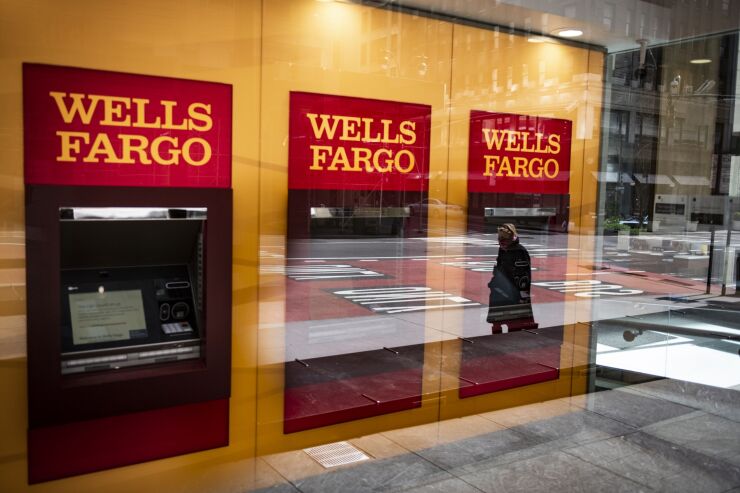Wells Fargo is once again drawing criticism from Sen. Elizabeth Warren — this time for placing homeowners in forbearance plans during the pandemic without their consent.
Warren is asking the Federal Reserve Board to consider Wells’s flawed approach to forbearance in the COVID-19 crisis as the Fed reviews the status of the asset cap placed on the bank in February 2018.
“This recent incident is another stark reminder that Wells Fargo has not yet implemented the types of structural reforms needed,” the Massachusetts Democrat wrote in a letter Wednesday to Fed Chair Jerome Powell, “and that much additional progress is necessary before the Fed begins to consider permanently lifting the asset cap.”
The San Francisco bank provided Warren information about the unrequested forbearance plans early last month. On Thursday, Warren publicly released Wells Fargo’s Sept. 4 letter, as well as certain documents that the bank also shared.

Wells Fargo’s letter states that the bank has received approximately 1,600 complaints from customers saying that they did not request a forbearance. The bank did not provide a total number of customers who received a forbearance without their consent, though it did provide additional details about what it has learned so far.
Wells has identified 904 instances in which homeowners who were in bankruptcy proceedings were placed into forbearance plans that they did not request, according to the bank’s letter. Roughly 38% of those borrowers have since confirmed that they did not want to be placed into forbearance. Forbearance plans allow borrowers to skip their monthly payments, which will be due at a later date.
Wells also acknowledged that an unspecified number of homeowners who contacted the bank about a pandemic-related hardship were placed into forbearance even though they did not request that option.
“We subsequently changed our practices to ensure that customer service representatives expressly confirmed a customer’s intent before providing a forbearance,” Kristy Fercho, Wells Fargo’s head of home lending, wrote in the letter to Warren.
Wells has been contacting borrowers who may not have wanted forbearances they received, including some who did ask for a payment deferral on a mortgage or home equity account, but also received one on another linked account. The bank has not said how many borrowers fall into that category.
“We have been proactively reaching out to customers to resolve these concerns,” Wells Fargo spokesman Tom Goyda said in an email Thursday. “We are removing forbearances when requested, adjusting credit reporting and working directly with any customer who received an unwanted payment suspension.”
Goyda said that Wells encourages customers who believe their payments were suspended incorrectly to contact the bank. He added that the $1.9 trillion-asset bank is committed to providing Warren’s office with updates.
“Finally, we have made — and continue to make — transformative changes to our independent risk management structure and control organization, including important work to further strengthen the independent oversight of all risk-taking activities and a more comprehensive view of risk across the company,” Goyda said.
Under the pandemic response law passed by Congress in March, servicers of federally backed mortgages are required to offer forbearance of up to 180 days to borrowers who request it. Wells has also provided forbearance during the pandemic to some homeowners whose mortgages are not backed by the federal government.
In her letter to the Fed, Warren expressed concern that placing borrowers into forbearance without their consent and without considering their needs can result in financial harm.
She noted that borrowers who were current on their mortgages when they were placed into forbearance may not be eligible to refinance when interest rates decline, and that certain credit scores can also be impacted. For borrowers who were in bankruptcy proceedings, a forbearance without certain other actions could have negative consequences, Warren said.
According to a





